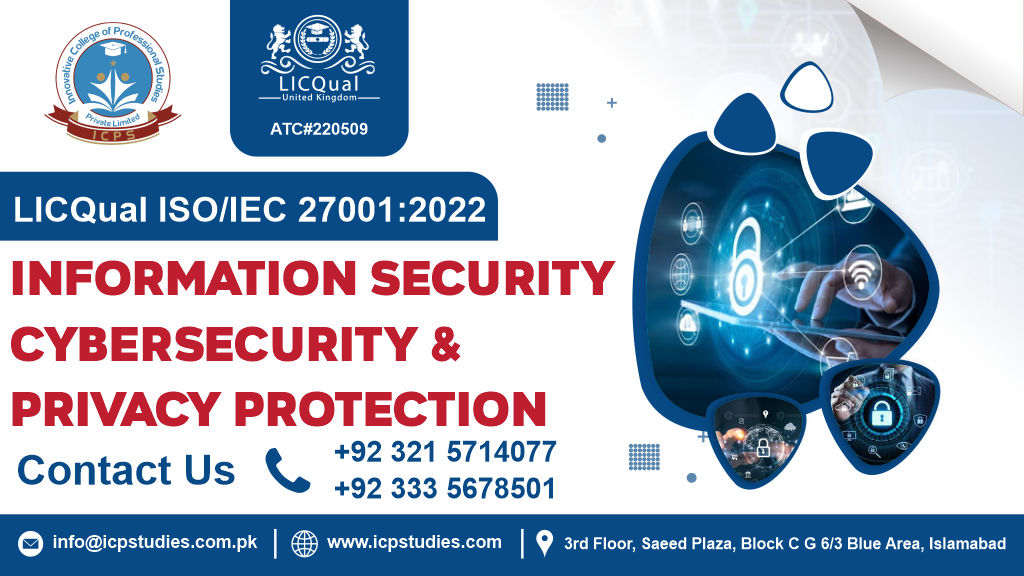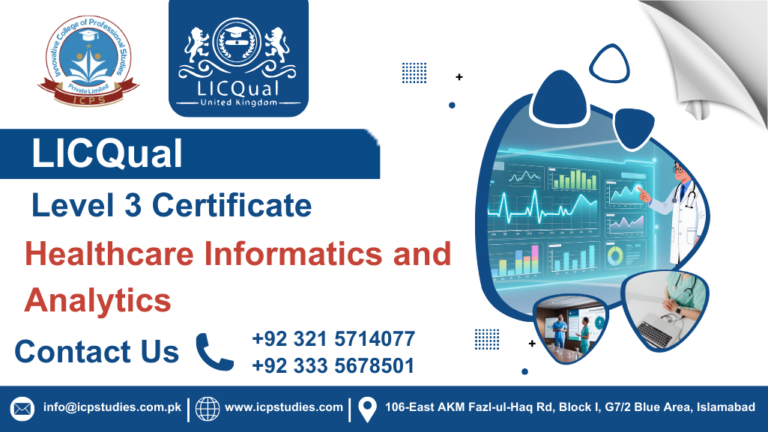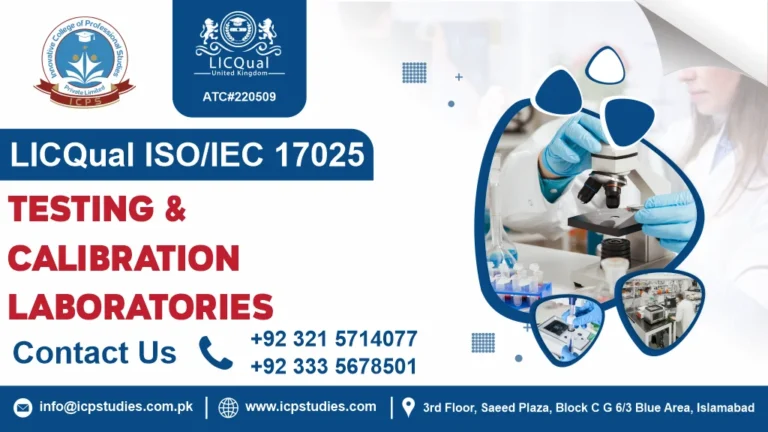In an era where information security, cybersecurity, and privacy protection are paramount, organizations are increasingly turning to standardized frameworks to safeguard their digital assets and sensitive information. One such framework is ISO/IEC 27001:2022, a leading international standard for Information Security Management Systems (ISMS). For professionals aiming to ensure compliance and drive improvements within their organizations, becoming an ISO/IEC 27001:2022 Information Security, Cybersecurity, and Privacy Protection Internal Auditor can be a transformative step.
ISO/IEC 27001:2022 is the latest iteration of the international standard for information security management systems (ISMS). It provides a systematic approach to managing sensitive company information, ensuring its confidentiality, integrity, and availability. The 2022 update includes revised guidelines and controls to address the evolving landscape of cybersecurity threats and privacy concerns, reflecting the latest best practices and technological advancements.
ISO/IEC 27001:2022 Information Security, Cybersecurity, and Privacy Protection Internal Auditor is pivotal in ensuring that organizations effectively manage and protect their information assets. By undertaking this specialized training, professionals can enhance their expertise in information security management, contribute to their organization’s success, and advance their careers in a rapidly evolving field. In a world where information security is critical to organizational success, this certification represents a significant investment in both professional development and organizational resilience.
All About ISO IEC 27001 2022 Information Security, Cybersecurity and Privacy Protection Internal Auditor
Course Overview
An ISO/IEC 27001:2022 Information Security, Cybersecurity, and Privacy Protection Internal Auditor is a professional responsible for evaluating and ensuring the effectiveness of an organization’s Information Security Management System (ISMS) in accordance with the ISO/IEC 27001:2022 standard. This standard is a globally recognized framework for managing sensitive information, ensuring its confidentiality, integrity, and availability.
ISO/IEC 27001:2022 Information Security, Cybersecurity, and Privacy Protection Internal Auditor plays a critical role in helping organizations manage and safeguard their sensitive information by ensuring compliance with international standards, identifying areas for improvement, and supporting continuous enhancement of information security practices.
Study Units
- Introduction to ISO/IEC 27001:2022
- Information Security Principles
- Cybersecurity Threats and Vulnerabilities
- Risk Management
- Privacy Protection Frameworks
- Security Controls and Measures
- Incident Management and Response
- Internal Audit Techniques
- Documentation and Record-Keeping
- Continuous Improvement
The entry requirements for the LICQual ISO/IEC 27001:2022 Information Security, Cybersecurity, and Privacy Protection Internal Auditor course typically include:
- Educational Background: A degree in information technology, cybersecurity, computer science, or a related field is preferred.
- Work Experience: Relevant experience in information security, cybersecurity, or auditing, usually 2-3 years.
- Familiarity with ISO Standards: Basic knowledge of ISO/IEC 27001 and related standards in information security management is beneficial.
- Understanding of Information Security Principles: Awareness of information security concepts, risk management, and best practices.
- Internal Auditing Skills: Knowledge of internal auditing processes and techniques, preferably with prior auditing experience.
- Analytical Skills: Ability to analyze information security processes and assess compliance with standards.
- Communication Skills: Strong verbal and written communication abilities to effectively engage with stakeholders during audits.
These requirements ensure that participants are well-prepared to conduct internal audits of information security management systems based on ISO/IEC 27001:2022 standards.
4o mini
Educational Background: A degree or equivalent qualification in information technology, cybersecurity, business management, or a related field.
Professional Experience: Relevant work experience in information security, auditing, risk management, or compliance, usually ranging from one to three years.
Understanding of ISO Standards: Familiarity with ISO 27001 and related standards is beneficial, although not always mandatory.
Basic IT Knowledge: A general understanding of information technology concepts and cybersecurity principles.
Commitment to Learning: An eagerness to engage in course materials and practical assessments.
Communication Skills: Good verbal and written communication skills for effective reporting and collaboration.
- .
Learning Outcome
Introduction to ISO/IEC 27001:2022
- Learning Outcomes:
- Understand the purpose, scope, and key requirements of the ISO/IEC 27001:2022 standard.
- Gain familiarity with the structure and clauses of the standard and how they apply to information security management.
- Recognize the benefits and importance of implementing an Information Security Management System (ISMS) in alignment with ISO/IEC 27001:2022.
2. Information Security Principles
- Learning Outcomes:
- Comprehend fundamental concepts of information security, including confidentiality, integrity, and availability (CIA triad).
- Explore the principles underpinning effective information security management and their application within an ISMS.
- Analyze how these principles guide the development and implementation of security policies and practices.
3. Cybersecurity Threats and Vulnerabilities
- Learning Outcomes:
- Identify common cybersecurity threats and vulnerabilities that affect information systems and data.
- Understand the impact of various types of threats on organizational security and operations.
- Learn techniques for assessing and mitigating vulnerabilities to protect against potential cyber-attacks.
4. Risk Management
- Learning Outcomes:
- Learn the process of risk management, including risk identification, assessment, and evaluation.
- Develop skills in creating and implementing risk treatment plans to address identified risks.
- Understand how to integrate risk management practices into the ISMS to enhance overall information security.
5. Privacy Protection Frameworks
- Learning Outcomes:
- Explore various privacy protection frameworks and regulations, such as GDPR, CCPA, and other relevant standards.
- Understand how to incorporate privacy protection measures into the ISMS to ensure compliance with legal and regulatory requirements.
- Learn techniques for assessing and managing privacy risks and ensuring the protection of personal data.
6. Security Controls and Measures
- Learning Outcomes:
- Identify and evaluate different types of security controls and measures required by ISO/IEC 27001:2022.
- Understand how to implement and monitor these controls to safeguard information assets effectively.
- Learn best practices for selecting, deploying, and managing security controls to mitigate risks.
7. Incident Management and Response
- Learning Outcomes:
- Develop skills in managing and responding to information security incidents and breaches.
- Understand the steps involved in incident response, including detection, containment, eradication, and recovery.
- Learn how to document and report incidents and implement corrective actions to prevent future occurrences.
8. Internal Audit Techniques
- Learning Outcomes:
- Acquire practical knowledge of internal audit techniques, including audit planning, execution, and reporting.
- Learn how to conduct effective internal audits of the ISMS, including gathering evidence, interviewing staff, and assessing controls.
- Understand how to evaluate audit findings and provide recommendations for improving information security practices.
9. Documentation and Record-Keeping
- Learning Outcomes:
- Understand the importance of proper documentation and record-keeping in maintaining an effective ISMS.
- Learn best practices for creating, managing, and storing documentation related to information security policies, procedures, and audit reports.
- Develop skills in ensuring that documentation supports compliance with ISO/IEC 27001:2022 and facilitates efficient audit processes.
10. Continuous Improvement
- Learning Outcomes:
- Explore strategies for driving continuous improvement within the ISMS, including evaluating and enhancing existing processes.
- Understand the role of internal audits in identifying opportunities for improvement and implementing corrective actions.
- Learn how to foster a culture of continuous improvement to ensure the ongoing effectiveness and adaptation of the ISMS to emerging threats and changes.
These learning outcomes are designed to provide participants with a comprehensive understanding of ISO/IEC 27001:2022 and the skills necessary to effectively audit and improve information security, cybersecurity, and privacy protection within organizations.
FAQs about ISO IEC 27001 2022 Information Security, Cybersecurity and Privacy Protection Internal Auditor







